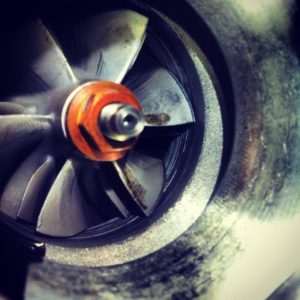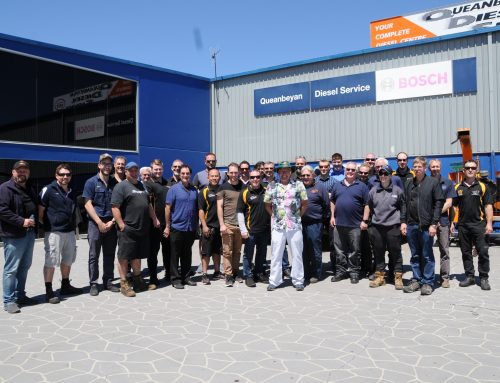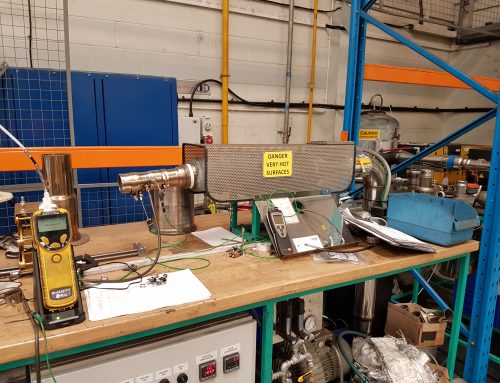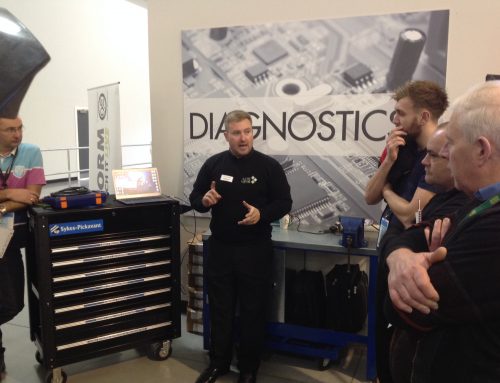Now I’m sure this a hot topic amongst us technicians and I’m sure you will all have something to say about it and I encourage you to do so !
I’m not renowned for beating round the bush so I’ll get on with it.
Long Life servicing is a complete cock up and a bad idea unless of course you’re a vehicle manufacture.
I will explain my theory, It’s my firm belief that long life servicing is being marketed at driving down the cost of motoring and appeal to drivers and would be car buyers that its affordable to drive the modern diesel and lure you in to tempting service packs which appear to be excellent value for money !!
I cant disagree that the temptation to allow the vehicle manufacture to service and maintain my shiny new car for 3,5 or even 7 years for as little as £300 or £500 would get any bodies wallets salivating !
Despite the advances in materials, chemical and Automotive engineering process leaving oil changes for 18’000 or in some cases 2 years is mad !!!
In reality it only jeopardises the longevity and reliability of the modern car and engine especially diesels !!
We as repairers are witnessing a sharp and sudden increase in what can only be described as an epidemic failure rate on EGR valves, Turbos, DPF filters I’m sure you will agree. I know turbo chargers do have a limited service life like any mechanical component but I’ve been in this job for almost 18 years and I’ve never witnessed such a high failure on Turbo chargers.
Historically if your well maintained turbo would last at least 100’000 or 150’000 miles, where as now I’ve replaced them at 30’000 miles. why ???????
Modern Turbo diesel engines are being stretched to the limit partly due to the gentlemen in Zurich imposing tighter and tighter emission legislation, and increased torque limits to eliminate flat spots and most Turbo’s are pushing 2300-2500 mb (atmospheric) in the mid range putting substantial strain on the bearing assembly.
Now most variable vane assembly turbo’s will spin up to an astonishing rate of 150’000 rpm which creates a huge amount of friction and inevitably heat in the bearing assembly. The very least we can do to help and maintain the longevity of the turbo charger is to replace the oil every 10’000 to give the poor thing a fighting chance.
We all know the majority of people jump in the car coffee and or make-up in hand with no time to spare start up and drive to work at mach 3 without giving the engine time to even warm up and turn off jump out lock up and repeat daily.
Coupled with long life servicing (18’000 miles) oil changes and super market fuel we have created a ticking time bomb !!
Don’t misunderstand me here it’s great for us repairing these systems and long may it continue but from an engineering point of view it’s ludicrous.
Where’s all this going/ Sadly we now live in a throw away society and I’m witnessing an increasing number of people willing to discard there once loved motor machines if staring a ta potential repair bill to replace the turbo, Oil feed pipe, oil, filters, sump off etc etc. instead they seem quiet comfortable to just simply trade it in and buy a new one.
Truth is if a consumer can go out and buy a new car backed up by a manufactures warranty for several years with out having to worry I cant really blame them but sadly when these vehicles are presented into the aftermarket for us to repair it’s too late, they’re knackered and financially uneconomical for repair.
Great for the manufactures, rubbish news for us !
The pictures and videos I have submitted with this article are taken from a BMW 320d 2007 which has covered 70’000 miles and has been subjected to BMW long life service plan and I counted 4 oil changes in it’s life.
The oil was like black treacle and the engine oil separator had never been touched which according to BMW own schedule should be replaced at 30’000 miles !!!
We always put in huge effort after repairs such as this to properly flush the engine with BG 109 and in most cases remove the Sump to clean the oil pump pick up gauze which is gummed up with dirty old oil and contaminants. What’s the point of carrying out a repair or replacing the turbo only to fill a dirty engine with clean oil. Even if it takes me two attempts I always make sure the engine is immaculate inside before replacing the oil and to date the BG 109 product comes up trumps !
As for the Air filter, HA 🙂
Just take a look at the pictures I’ve taken only yesterday in the workshop.

The Turbo inlet clearly shows signs of the blades catching the outer casing caused by core bearing failure.
Of course I cant prove my theory behind the motivation for long life servicing but I think I’m onto something. Please feel free to discuss and help me educate the motorists about the truth and value behind regular servicing. I spend a huge amount of time and effort in order to educate and attempt to help my customers save money in the long run sadly it’s often I’ve after a major repair and replaced the turbo.
For training details and further info click www.ads-global.co.uk
By David Massey
ADS








yes i came to the conclusion , A other huge problem is What i have done research on for years ultra low sulfur diesel helps cause some of these problems also with cross contermination of ethanol from switch-loads delivery to bowser. It causes rapid aggressive corrosion in fueling systems it also shrinks o rings as the sulfur used to keep seals swollen on high sulfur diesel is now removed on ultra low sulfur -ulsd. i always have some good diesel-fuel additive with every drop of diesel in my tank and advise my customers to use any suitable brand also.
Spot on, good research.
Couldn’t agree more we find more and more problems now due to this .
yes i think we all agree you can tell the engines that have been regular service.we are getting a lot more problems now from lack of service.
as for fuel my brother in law runs a taxi witch keep having injector problems.I told him to use injector clean every month no more problems.
Spot on Dave, we see it all the time, our car doctor facebook page shows a corsa oil filter almost completely clogged on a 70k mile car, result of neglect needed new timing chain, cam followers and cams. The engines should be good for 150k miles plus not changing oil and filter at least annually either brings about unessesary expensive repairs or premature write of of the vehicle due to it being an uneconomic repair.
Take some pictures Dave and do a write up and I’ll pop it up on Autoinform ! Any interesting jobs just share and together we can attempt to educate to public in our area and hopefully save them money. I find good honest advice wins trust and builds relationships which last for years.
Totally agree, my 1.9CDti Vectra is on 227k original turbo, head never been off, nearest I’ve got to internals was resealing the sump after replacing crank shaft oil seal! Serviced every 10k, think that helps you make your point!
I have a 2006 vectra 1.9 cdti. Currently on 228k, serviced every 10k regardless
Agree with all of the above. I suspect long-life servicing is designed to appeal to fleet buyers and leasing companies who are only interested in the cost of ownership for the first few years. The manufacturers enjoy the additional fleet sales and the short service life of vehicles and components can only result in increased parts and vehicle sales. The same reason I believe many manufacturers have switched from belt-driven camshafts to chain drive, which we all know are not sealed for life as the manufacturers suggest, but of course reduces the on-paper running costs.
As Carl suggests above, when service schedules are ignored and vehicles are serviced more frequently, very long service life is still possible. We have a Kangoo in our fleet and when replacing the sump gasket at 210k miles, we noticed the engine still looked new inside (turbo and engine mechanicals are all original), needless to say it has been serviced more frequently than the recommended 18,000 miles.
If motorists lean towards the idea of disposable motoring, I wonder how long it will be sustainable for, as at present leasing costs are based on the idea of selling the cars used, but who will want a four year old car that was designed to last three years?
Agree totally a member of staff had the same problem with a BMW. All because of the cost of a good quality oil and filter.
These extended service intervals are a total joke! I believe they are a dream to vehicle manufacturers,as new cars don’t rust annymore they want a way to limit the lifespan of new cars,what better way than telling customers that their new vehicles only need servicing after 2 years/18000 miles! Also many of the plastic engine components seem to crack/distort and need replacing. All this technology for a car that ends up spending most of its time crawling in traffic.
It was all said many years ago,the candle that burns twice as bright lives half as long.Modern day diesels do not need extra-cheap fuel but they do need extra looking after in the service department.I really think there is a generation driving diesels that think they will go on forever with minimum maintenance and that is it.They are not Bedford tk’s that will red line @3000 rpm.They go like stink compared to the old days.I am a 45 year old Auto Electrician and am having to clear up this mess of – oh service the vehicle when yer like.I try my best,but the public needs educating on this matter.End of rant.
You let a corsa 1.0,1.2 or 1.4 miss a service or get to long life age and the filter seperate exactly like wet tissue paper crumbles to next to nothing and spend most of your service making sure youve not missed a piece
Does anyone see any improvement with fully synthetic oils, instead of mineral?
I have a Passat tdi 1.9, its a 98, with 263000 miles on it now. Despite having raced cars for twenty years on circuits, I learnt how to make them last as well as breaking them.
A recovery driver once told me that his truck had 300 plus miles on it, I was amazed. Justkeep putting clean oil in he said.
After letting VW servicece and then having to return it to them twice, I startedservicing it myself. Half an hour on my car ramps, twenty quid for oil and filters, do it every 5,000. This may seem excessive but the car has never had a turbo, exhaust or clutch
If you look at yourdiesel oil a week after changing it, you will find it jet black. This is also whydiesels have bigger oil filters. The diesel engine, dirties its oil veryquickly and carries dirt in its own.
Good luck out there !
At last someone with some danglies, a mechanic who is prepared to put there neck on the block and speak out. I have known about the advantages of regular oil changing for years.
As far as I am aware from my school days, carbon is an abrasive. The black particles in your oil which make it black is mostly carbon from the combustion process. My logic tells me
leaving oil in an engine to long is wearing it out sooner. So changing more often is going to prolong the life of the engine.
Recently I bought a new VW T5, I have wanted one for years. The salesman told me the oil needs changing when the light comes on or 2 years (more danglies)….
I fully intend to do my own servicing regardless of warranty issues (more danglies) because I want my twin turbo and engine to last.
If I change my oil every 10,000 miles, can anyone tell me if I should use 5w 40s instead of the 5w 30s quoted by VW long service rubbish ?
I also run on 30% biodiesel but that’s another story.